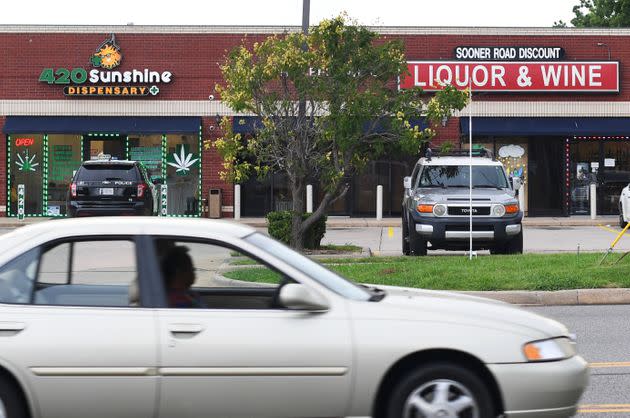
No legalization of cannabis in Oklahoma – Cannabis | weed | marijuana
Despite a medical cannabis regime with hundreds of in-store dispensaries, Oklahoma voters have said no to wholesale legalization of recreational cannabis.
On Tuesday, Oklahoma voters rejected a ballot initiative that would have legalized recreational cannabis use by adults over the age of 21.
While Oklahoma is a stereotypically conservative state, medicinal cannabis has been making inroads in recent years. However, Oklahoma joins other conservative states like Arkansas, North Dakota, and South Dakota in saying no to cannabis legalization.
No legalization of cannabis in Oklahoma
Oklahoma’s vote against legalizing cannabis is undoubtedly a setback for those in the know about the state. Especially for the young freedom-loving conservatives who realize that prohibiting cannabis is just as costly and effective as prohibiting alcohol once was.
Although nearly 10 percent of Oklahoma’s population holds a medical cannabis card, 63 percent voted against legalizing recreational cannabis. 38% voted yes for State Question 820.
Oklahoma Governor Kevin Stitt opposed the measure. At a news conference last month, he said: “The reason I think it’s a bad idea is that it’s still illegal at the federal level. I think marijuana is bad for young people. I think people need to understand the side effects of that.”
Stitt didn’t elaborate on what these “side effects” are, nor does he appear to object to taxes being levied on the 2,890 active pharmacy licenses statewide.
While rural Oklahoma is still a conservative country opposed to cannabis legalization, Oklahoma City is a different world.
“I feel like we already have recreational marijuana. There just doesn’t seem to be a barrier,” Mayor David Holt told the New York Times. “Right now I’m aware that there’s a pharmacy on every corner.”
Yes to 820: Tax revenue from cannabis

The Yes on 820 campaign hoped that Oklahoma voters would say yes to cannabis legalization.
They argued that legal cannabis would free up law enforcement and divert police to more serious crimes, such as violent crime or cannabis production outside of state regulation.
Some have argued that governments could generate significant revenue by taxing cannabis to fund public services such as the police, who enforce prohibition, or schools, which indoctrinate children into believing that cannabis prohibition works and is morally justified.
Cannabis tax revenues could also help fix budget deficits due to runaway government spending.
No Cannabis Legalization In Oklahoma: Now What?
With Oklahoma voters ultimately saying no to cannabis legalization, some fear police will begin cracking down on Oklahoma’s “wild west” of medicinal cannabis.
The state government also wants to make such electoral initiatives more difficult.
However, some speculate that this is fear mongering by the left. While it’s true that Governor Stitt isn’t a fan of recreational cannabis, he expanded Oklahoma’s medical cannabis program and signed House Bill 2612, which specifically stated that medical cannabis patients would not lose their access to firearms.
So far, Stitt is a bigger fan of cannabis than Joe Biden.

Post a comment: